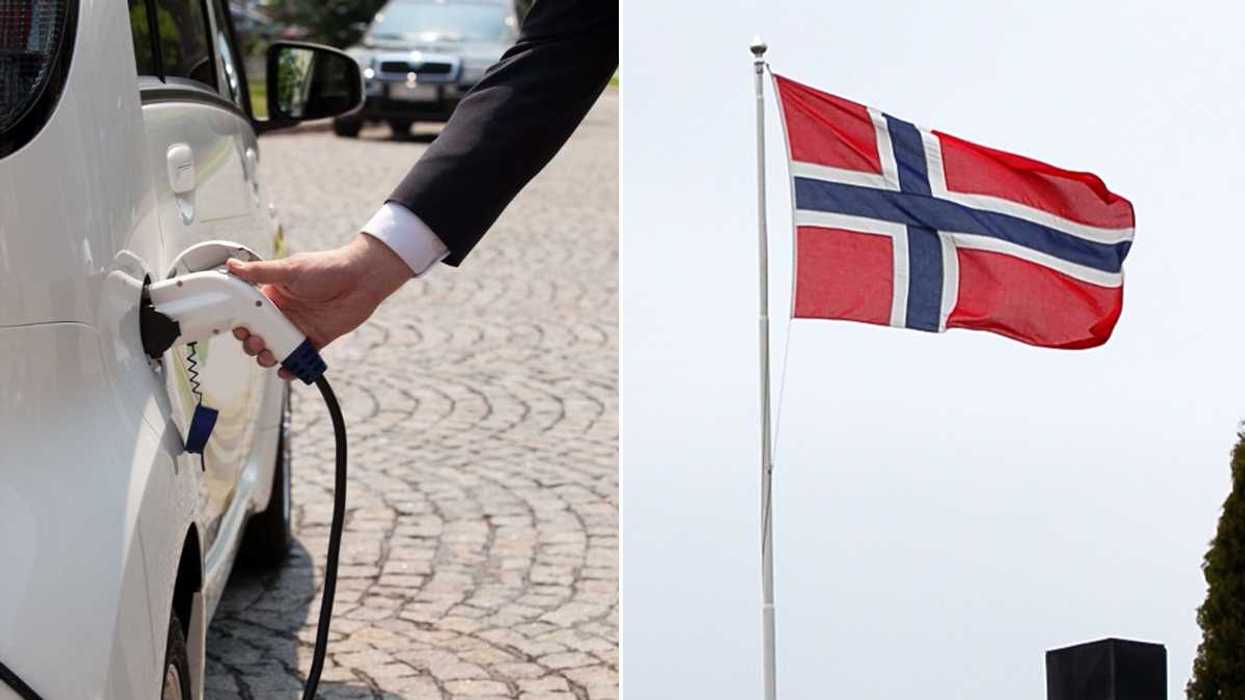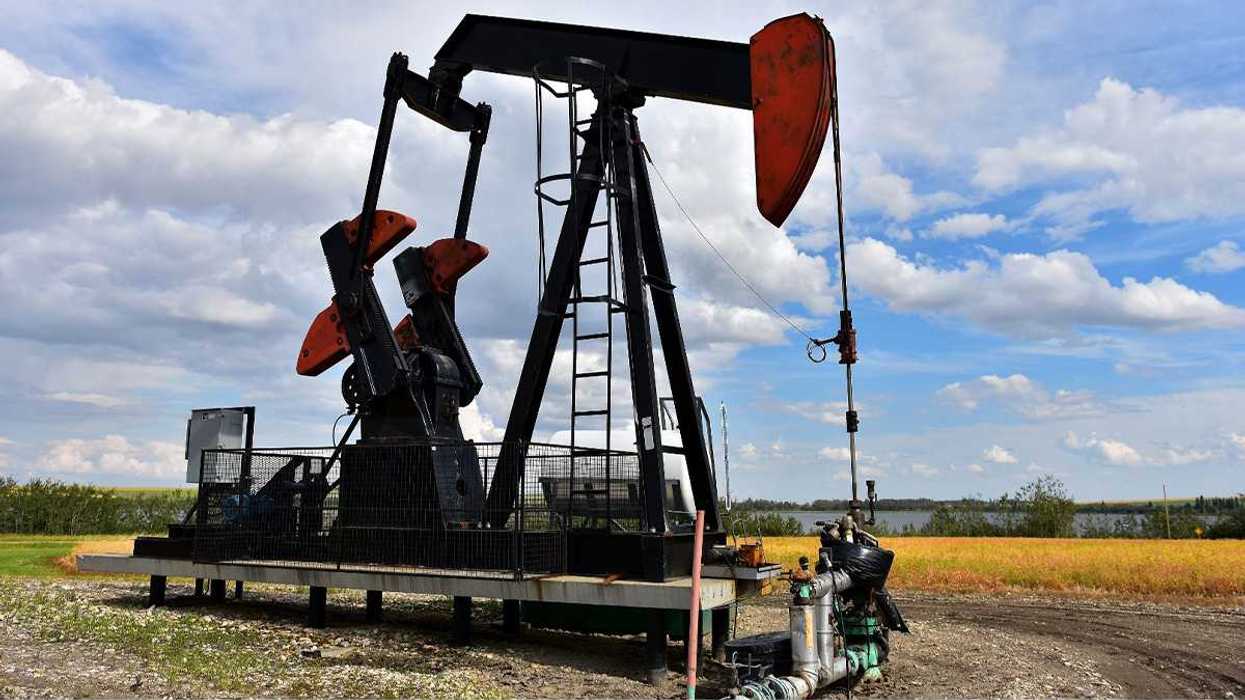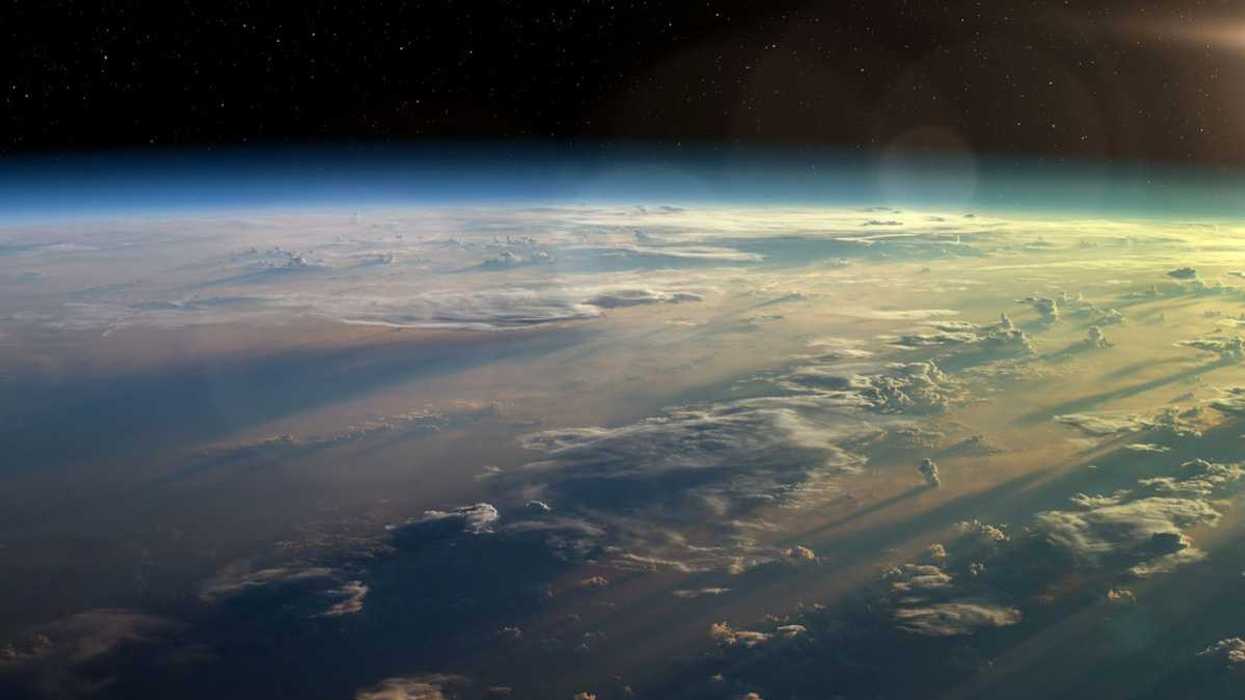Save the whales, because the whales can save us.
A team of economists at the International Monetary Fund (IMF) waned to drive home how important whales are, so they put it in terms we could understand: money. A new analysis detailed in Finance & Development puts a price tag on exactly how much whales are worth to us, and why we should care about the world's whale population.
Whales absorb large amounts of carbon in their bodies. During the lifetime of the average whale, which is 60 years, it will sequester 33 tons of CO2. In comparison, a tree absorbs up to 48 pounds of CO2 each year. Whales also promote the growth of phytoplankton. Phytoplankton captures 40% of the world's CO2 and contributes at least 50% of oxygen to the atmosphere. "At a minimum, even a one percent increase in phytoplankton productivity thanks to whale activity would capture hundreds of millions of tons of additional CO2 a year, equivalent to the sudden appearance of two billion mature trees," the study says.
Whales promote the growth of phytoplankton in two ways. The movement of whales pushes nutrients from the bottom of the ocean to the surface, which feeds phytoplankton and other marine life. The second way they help with carbon absorption is through their poop. "It turns out that whales' waste products contain exactly the substances — notably iron and nitrogen — phytoplankton need to grow," per the study. Yes, you read that right. Whale poop might be the solution to climate change we've been waiting for.
RELATED: Whales' migration patterns can be tracked by their songs, researchers claim
The IMF says that each whale is worth more than $2 million. All of the world's whales have a value of over $1 trillion. According the IMF, "if whales were allowed to return to their pre-whaling numbers — capturing 1.7 billion tons of CO2 annually — it would be worth about $13 per person a year to subsidize these whales' CO2 sequestration efforts."
The whale population is one-fourth of what it was pre-commercial whaling. There used to be four to five million whales swimming the world's oceans. Now, there's just over 1.3 million. Certain species of whales have dwindled more than others, such as the blue whale, whose population is 3% of what it once was.
The whale population is recovering, however, since commercial whaling ended in 1986, but they still face many other problems, such as overfishing. There is a catch-22 as well. Dwindling whale populations can lead to an increase in greenhouse gases, and an increase in greenhouse gases can decrease the whale population. "Whales are highly mobile creatures, so if climate change causes the prey to move, they will probably follow them. Then there's the increased competition that comes about as surface temperatures change and species move to different habitats — all of a sudden, you have different species using the same area, so there's more competition," Natalie Barefoot, executive director of Cet Law and co-author of a report looking at how whales absorb carbon, told Scientific American.
RELATED: A massive 'stampede' of dolphins spotted off California coast
Increasing the whale population is a "no-tech" solution, and IS easier to execute than some of the other ways suggested to combat climate change. "Since the role of whales is irreplaceable in mitigating and building resilience to climate change, their survival should be integrated into the objectives of the 190 countries that in 2015 signed the Paris Agreement for combating climate risk," the report says.
And now we know exactly what it'll cost. But more importantly, we know exactly what it'll cost if we don't invest in whales.
















 Amoxicillin is a commonly prescribed broad-spectrum antibiotic.
Amoxicillin is a commonly prescribed broad-spectrum antibiotic.  Chart: The Conversation, CC-BY-ND
Chart: The Conversation, CC-BY-ND
 An envelope filled with cashCanva
An envelope filled with cashCanva Gif of someone saying "Oh, you
Gif of someone saying "Oh, you
 Two penguins play by the waterCanva
Two penguins play by the waterCanva
 A parking lot for charging electric vehicles.Photo credit
A parking lot for charging electric vehicles.Photo credit  Oil production.Photo credit
Oil production.Photo credit  Sun shines over the Earth.Photo credit
Sun shines over the Earth.Photo credit 
 Counterintuitively, social media can make you feel more bored and lonely.
Counterintuitively, social media can make you feel more bored and lonely. Talking about what you’ve read can add a social dimension to what can be a solitary activity.
Talking about what you’ve read can add a social dimension to what can be a solitary activity. 
 A flight attendant closes the overhead binCanva
A flight attendant closes the overhead binCanva Gif of Larry David trying to put his luggage in overhead compartment via
Gif of Larry David trying to put his luggage in overhead compartment via 
 Dog owner pets their dogCanva
Dog owner pets their dogCanva Gif of a sad looking pug via
Gif of a sad looking pug via 